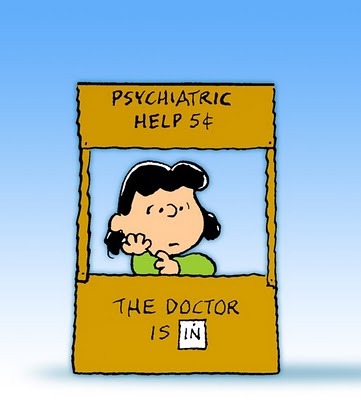 |
| Don Woodard |
Guest Post
Today's advice comes from Don Woodard, a veteran TV writer and producer best known for his work on "Just Shoot Me," "Dream On" and "Rodney". Oh, and then there is that little credit I am most jealous of: "Family Guy". As an actor, he's appeared on Newhart, Perfect Strangers and The Golden Girls. So aside from being versatile, he's got great stories for a cocktail party. Here, he discusses the joys -- and pains -- of having a writing partner.
Tips from TV writer Don Woodard
No man is an island ... and I’m guessing no woman is an island, either...
Writing alone is a blessing. The idea
of tuning out the world and creating something unfettered and so
wonderfully right-brained that the words flow free and that voice
comes alive and… Crap. I should start over. No. Push on. No, I
hate how this is starting. Unfettered? Really? Unfettered? Shut.
Up. YOU shut up. Wonder who’s winning the hockey game. Great
question. Back in a sec.
So writing alone is also a curse.
Working with a partner has its rewards
and difficulties. For most of my twenty-plus years writing TV, I had
a partner. I wouldn’t be the first to describe it as a second
marriage, with a lot of ups and a few downs. Familiarity breeds
contempt and all that. Jesus, if he sucks one more pad thai noodle
through those thin, pursed bastard lips of his, I swear… You get
the idea.

On the other hand, what a joy, when
that critic in your head starts to weigh in, and there’s someone
else in the room to help calibrate the dreaded scales of judgment.
“Is this funny?” “It’s very funny.” “It doesn’t feel
funny.” “That’s because we’ve read it thirty times. I
laughed out loud when you pitched it. Nothing’s changed. It’s
still funny.” “Okay. But please stop slurping your pad thai.”
So what’s right for you? I’ve
loved collaborating daily with someone. Television shows certainly
like hiring partners. They get twice the talent (let’s hope) and
twice the sweat equity for the price of one. In these discount days,
studios have been known to hire writers on the condition that they
pair up with someone else they’ve hired, which, returning to our
marriage analogy, well… These arrangements are still legal in
certain parts of world, no?
I think partnering is especially good
for comedy writers for the “is this funny” factor alone. It’s
also a lot easier to come up with story ideas that have beginnings,
middles and ends when you have someone to bounce your genius off of.
And if, at worst, both of you are terrible at deadlines and
discipline, there’s a guilt factor involved that pushes even two of
the worst procrastinators across the finish line. (“I am not
going to be the one to screw this up.”)
So there’s one piece of advice: Get a
partner.
Here’s another: Don’t.
If writing with someone else is not for
you, then set those hours, close that door, ignore that phone, and
write. But step out into the daylight more often than you think you
need to.
Here are a few quick thoughts if you’re
going to slog it alone:
1) Find a few critics. Ask
friends to read your work. If at all possible, try not to pre-load
your request with humility (“I know this sucks, but…”) or the
TV Guide logline (“It’s ‘Game of Thrones’ meets ‘The
Sopranos’ meets ‘Hoop Dreams’…”) or what you’re aiming
for (“With these 500 words, I topple the United Nations…”). In
most cases, it’s better if people come to it cold. Let the
material speak for itself. If you tell someone, going into it, that
you don’t think the dialogue in the confessional scene sounds
realistic? Guess what?
2) Use The Rule of Three, or at
least the Rule of Two. If one person says your main character is
playing beneath his intelligence in your brilliantly funny and
revealing “new, mean boss” scene, that should elicit a “hmm”
from you. If no one else has a problem with it, it’s probably
working. But if Person Two and Three ask why your hero is acting
like a douche in front of his superior when he’s never acted that
way before and it doesn’t seem motivated and, yeah, it’s kinda
funny but it doesn’t seem real? This is not the time to get
defensive. Breathe. Your scene needs work.
3) Don’t be insular in the first
place. Find a writers’ group. Or take a class. Networking is
important in this business, and you will most likely meet some folks
who will travel the same roads at not-the-very-same pace. Feedback
from these same people is even more important. Hearing how you’re
doing is a good thing; you’ll know, instinctively, whose notes to
respect, and whose to ignore. (Just remember the Rule of Two or
Three.)
So that’s it for now. Trust your
voice. But trust others, too. Television is about as collaborative
as it gets.
And if you can’t handle the feedback?
No worries, as the kids say.
That’s what playwriting is for.
Don Woodard is a veteran TV writer and producer best known for his work on "Just Shoot Me," "Dream On" and "Rodney". He was part of the legendary LA improv company The Groundlings ("pre-Ferrell, post-Shakespeare," as he describes it) and had guest roles on several classic TV shows including: Newhart, Perfect Strangers and The Golden Girls. Today, Don lives in North Carolina and raises money for a non-profit law firm that provides free civil and legal aid to low income people. Follow him on Twitter @WoodardWrites
 I mean, I knew the early books started as newspaper columns, but come on...
I mean, I knew the early books started as newspaper columns, but come on... I can easily get caught up, postponing the actual "writing" while I think and over think.
I can easily get caught up, postponing the actual "writing" while I think and over think.







.jpg)










